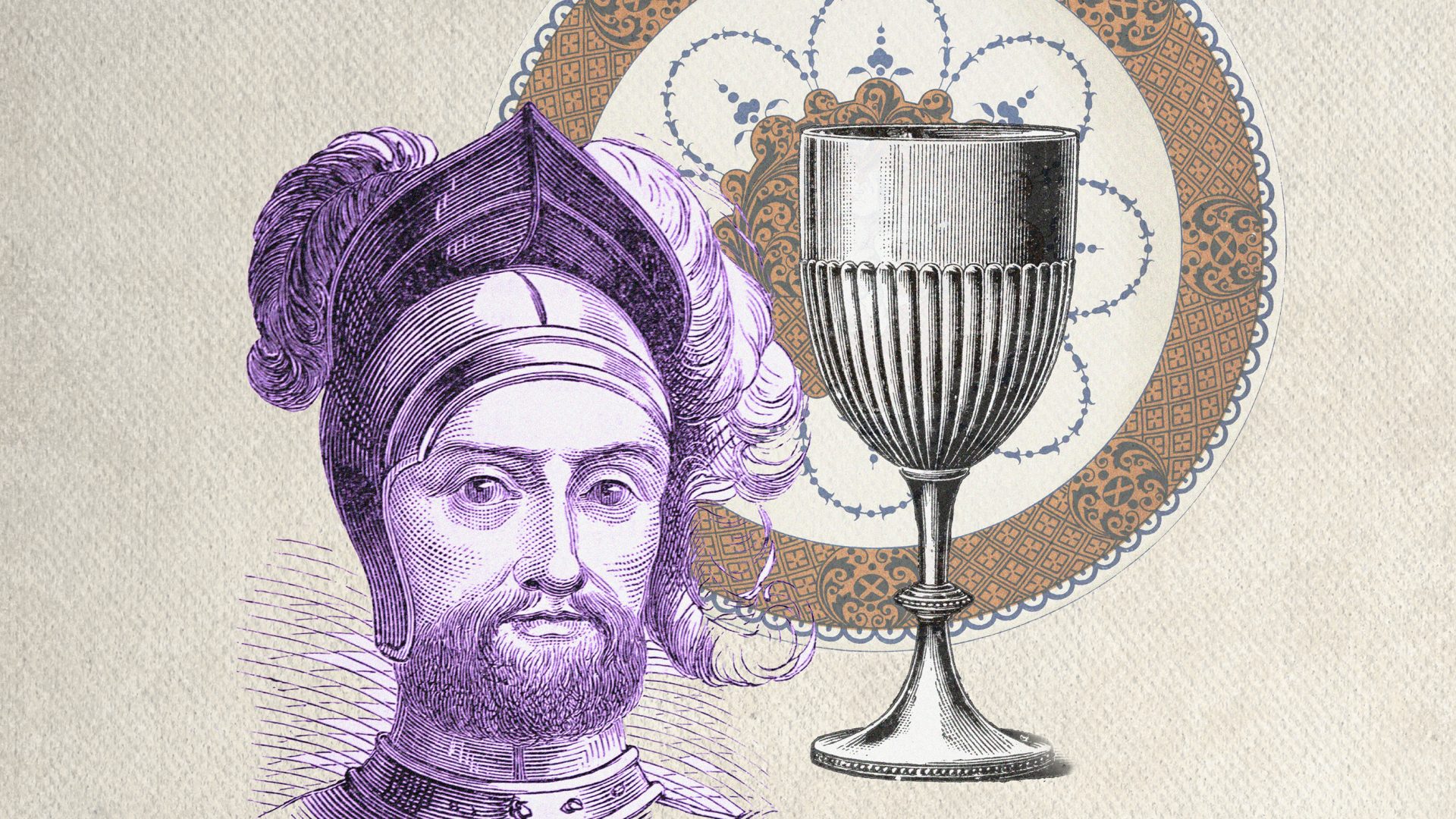There are large numbers of originally French words in modern English – some estimates put the proportion as high as 40% of our total vocabulary. In this opening paragraph, I have already used 10 words which were borrowed from French (see below).
It is interesting to note that Scots, the English language’s closest relative, may contain even more: there are a number of French loan words in Scots which are not widely known or used in the English of England. This fact is easy to understand when we recall that, historically, Scotland has often been politically and culturally a good deal closer to France than to England.
One example of this closeness was the Auld (“old”) Alliance, a defensive pact between the kingdoms of Scotland and France which was established in opposition to England. The Alliance treaty was signed in 1295 during the reigns of John Balliol, King of Scots, and Philip IV of France, against Edward I of England; it has never been formally revoked.
King John was disrespectfully known in Scotland as Toom Tabard, which is Scots for “empty jacket”; toom, like many Scots vocabulary items, comes from the Old Norse language of the Vikings, and tabard is a borrowing from French. This nickname probably referred to the ceremonial removal of heraldic insignia from King John’s jacket as part of his submission to Edward I of England, or just to him being ineffectual.
The terms of the treaty were that if one of the two kingdoms was attacked by England, then the other would invade English territory in its defence. The 1513 Battle of Flodden in Northumberland, when the Scots invaded England in response to an English campaign against France, was a case in point. Scottish soldiers also served in the French army during several continental campaigns.
The Alliance led to cultural exchanges of various sorts. French influence appears in some of Scotland’s architecture, and many Scots studied or taught in France over the centuries. This sort of contact can often lead to the borrowing of vocabulary. The Scots verb to fash “to afflict, annoy, trouble, vex”, also “to give trouble to, bother, weary” as in dinna fash yersel “don’t get upset”, derives from the French word fâcher “to get angry”, itself from Latin fasticare and ultimately from the Classical Latin verb fastidire “to be disgusted”.
The noun ashet is probably not known to most English people, but it is frequently used in Scots and Scottish English to refer to a large flat plate or serving dish. Ashet comes from French assiette “plate”, which is derived from the Latin past participle assedita of the verb assedere “to sit by or near someone or something”.
Another Scottish kitchen item, tass or tassie, is a cup or small goblet, the word being borrowed from French tasse “cup”.
Several Scottish culinary terms reflect French vocabulary. Gigot (also jigot) is used for a leg of mutton, and a gigot chop is a lamb chop; collop refers to an escalope “thin slice of meat”. Howtowdie – boiled chicken – comes from Old French hétoudeau “capon”. French ciboule “spring onion” became syboe in Scots, and cannelle “cinnamon” is Scots cannel.
Golf is well known to have developed in Scotland, probably in the 1400s, and like most sports it has its own specialised technical terms. A golf caddie is an attendant who carries the player’s clubs. Caddie originated in the French word cadet, whose earliest meaning in English, dating from the 1600s, was “younger son or brother”.
FRENCH LOAN WORDS
The 10 French-origin loan words at the beginning of this column are: mention, large, number, original, modern, proportion, column, sentence, present, and used.




